Reportage

Australian High Commissioner to Bangladesh Ms Julia Niblett delivered a keynote address at Cosmos Dialogue: Ambassador’s Lecture Series in Dhaka on 1 October 2019, focusing on major issues that helped build strong relations between Bangladesh and Australia. A career diplomat, Julia Niblett also widely dealt with the protracted Rohingya crisis, Bangladesh’s fast-growing economy, people-to-people contact and education while responding to a volley of questions from former diplomats, foreign affairs experts and university teachers at the event. Here are excerpts from her speech:
I would like to summarise Australia-Bangladesh relations: they are multi-faceted, deep, historical and therefore mature and cut across so many aspects of human endeavour, across multiple sectors. Even after three years here in Dhaka, I am still discovering more gems of collaboration, connection and creativity between people, institutions and businesses of our two countries, more historic connections and, always, more evidence of aspiration and ambition to do more together as countries and as people.
And the fact that Bangladesh is one of the fastest-growing economies in the Indian Ocean region means it is important to us and there is lots of potential in our relationship.
Bangladesh and Australia are old friends, and we were here at the beginning. Our friendship will be enduring because of its strong and authentic foundation.
We have been a trusted development partner since the 1970s when we provided cyclone shelters in villages all over the country.
Rohingya Issue
Australia recognises the generosity of Bangladesh in hosting over one million Rohingyas and has been actively supporting the humanitarian needs of those people affected by the Rohingya crisis, including in the host community, providing over $122 million in humanitarian assistance since August 2017. But our assistance in providing food to Rohingya and the host community of Cox's Bazar goes back long before that most recent influx.
During the Australian Foreign Minister's recent visit to Cox's Bazar [September 2019], she saw first-hand how Australian assistance is providing life-saving assistance, including the provision of food, shelter, medical services and clean water, to those displaced by this crisis.
On Myanmar, Australia has acted, and continues to act in response to the atrocities committed in Myanmar. We are deeply disturbed by the UN Fact Finding Mission's conclusion that war crimes, and likely, genocide, have occurred in Rakhine State. We have strongly condemned the atrocities committed in Myanmar.
Last year, Australia imposed targeted financial sanctions and travel bans on senior Myanmar military officers [October 2018].
At the current Human Rights Council session (HRC42), Australia continued to support, in fact co-sponsored the resolution on the situation of human rights of Rohingya Muslims and other minorities in Myanmar, reiterated our concerns, including regarding the ongoing fighting in Rakhine State, and the importance of accountability for atrocities and justice for the Rohingya [through our statements in the Interactive Dialogue with the Special Rapporteur on Myanmar [16 September] and the Interactive Dialogue with the UN Fact-Finding Mission on Myanmar [17 September].
Australia welcomed the establishment of the Independent Investigative Mechanism for Myanmar in our national statement delivered on 10 September 2019. Australia has expressed its concern on numerous occasions to the Myanmar Government about the renewal of violence in Rakhine State [between the Arakan Army and Myanmar security forces] and the further deterioration in the security environment, and the resulting restrictions on humanitarian access, which make finding a durable solution to the Rohingya crisis even more difficult.
Australia recognises the significant impact this crisis is having on Bangladesh, in particular, the host community in Cox's Bazar.
Going forward, we are committed to working side by side with Bangladesh and, as the Foreign Minister underlined during her visit last month, Australia will continue to provide humanitarian assistance to refugees and host communities impacted by crisis.
Our focus will be on continuing to provide life-saving assistance, protection, and education services to assist Rohingya people to better re-integrate into Myanmar society, when they are able to return safely.
Noting that Bangladesh is prone to natural disasters and, in response to environmental damage caused by the influx, Australia is supporting Disaster Risk Reduction measures, including reforestation and slope stabilisation projects that will regenerate the land and help mitigate the effects of monsoons and cyclones.
Australia will also continue to support efforts to create conditions conducive to returns in Myanmar, including through supporting the implementation of Rakhine Advisory Commission recommendations in Myanmar. We continue to encourage Myanmar to implement these recommendations, including removing ongoing restrictions on freedom of movement, and providing access to services and livelihood opportunities in Rakhine State.
And we continue to encourage the involvement of UN actors in any repatriation process. We will continue to work with Myanmar, Bangladesh, other regional partners and the broader international community towards a long-term and durable solution to the Rohingya crisis
And Australia will continue to pursue accountability for the abuses, and justice for the Rohingya through our strong support for UN resolutions and accountability mechanisms [the Independent Investigative Mechanism for Myanmar].
So we will stand by Bangladesh on the Rohingya issue.
Development Assistance
Our development assistance program has evolved over the years, as Bangladesh has achieved impressive economic growth. We have, for example, worked for more than 15 years as a partner of the Government of Bangladesh in education, focusing on primary education - vital for girls and boys to get the best start in life. As Bangladesh continues its trajectory towards graduation from Least Developed Country status, Australia has been supporting Bangladesh to invest in human development, skills and productivity, building resilience so that the country's poorest don't miss out on the benefits of economic growth; and we have been focusing on gender equality across all our activities.
Our Australia Awards program, providing scholarships for Bangladeshi students to undertake Master's degrees in Australia is well-regarded and has delivered a large number of alumni across a broad range of fields in Bangladesh.
People-to-people links
Australia and Bangladesh have very close people-to- people links, through many years of migration, sporting links and education. Almost 50,000 people of Bangladeshi origin are settled in Australia, and there are around 7,000 students in Australia - and I would like to see the number of students grow. Our education relationship is further strengthened through close links between at least twelve Australian universities with universities in Bangladesh - they collaborate on joint research projects, co-supervise PhD students, conduct exchanges of faculty and many other initiatives.
Under an MoU with Western Sydney University, the Ministry of Law, Justice and Parliamentary Affairs of Bangladesh is sending over 500 judges for training to enhance their knowledge in specialized areas such as transboundary crime, anti-terrorism law, climate and environmental law and juvenile justice.
We share a love of cricket and have trained, coached and befriended Bangladeshi players. We had the perfect diplomatic outcome when the Australian cricket team played two tests in Bangladesh in August and September 2017: with Bangladesh winning the first and Australia winning the second.
We even play Bangladesh's national sport - Kabaddi - in Australia, although our fledgling national team has a long way to go, if its performance at the recent World Cup in Malaysia is any indication! Now there is an opportunity - Kabbadi diplomacy!
Trade and Agriculture
I want to underline how much our trade relationship has grown over the last decade.
Trade between Australia and Bangladesh has grown by 550 per cent over the last decade, with almost $2.5 billion in two-way trade in 2018-19, including in goods and services. Significant trade in the ready-made garment industry and agricultural commodities are the cornerstones of the two-way trade relationship. Bangladesh benefits from duty and quota free access to the Australian market.
On agricultural cooperation, Australia has been active in partnering through agricultural research (Australian Centre for International Agricultural Research with BARI, the Department of Agriculture, Agriculture universities etc ), and has effectively leveraged our expertise on conservation agriculture, water management and crop disease management, as well as playing an important role in training the next generation of local researchers; and we have a regional program centring on northwest Bangladesh, India and Nepal that aims to strengthen food security and build climate change resilience.
In northern Bangladesh, Australia is helping to improve dry season agriculture through better management of groundwater resources, improved agricultural practices and crop diversification. In coastal regions of Bangladesh, Australia is helping farmers to adapt to rising salinity by planting different crops, such as legumes and pulses.
Countering Violent Extremism
In supporting Bangladesh to counter violent extremism - a problem that all countries face and we must tackle together, we are providing training for Police through the Police Staff College, and Australia Awards short courses on countering the financing of terrorism. We have issued an invitation to a Minister to attend the Conference in Melbourne in November this year on 'No Finance for Terrorism'. Focusing on prevention, through our funding and joint Australian and Bangladesh participation on the Board, Australia supports the Global Community Engagement and Resilience Fund (GCERF), for local, community-level initiatives to strengthen community resilience against violent extremist agendas.
Prognosis
Going forward, our policies will continue to give expression to Australia's values - freedom, democracy, the rule of law, equality and mutual respect.
The future of this region and of Australia's relationship with Bangladesh holds many opportunities. This is to be seen not only through the prism of the bilateral relationship, but also, importantly, how Australia and Bangladesh can work together within our region.
The Indo-Pacific is undergoing a significant strategic and economic transformation. - by 2030, the Indo-Pacific region is expected to be home to the world's five largest economies: China, the United States, India, Indonesia and Japan.
The Indian Ocean region is also transforming, with India and Bangladesh among the fastest growing economies. This economic dynamism brings new opportunities, and increased capacity to solve problems and to improve lives. A free and open Indian Ocean region is critical to Australia's and Bangladesh's national security and prosperity.
As a major thoroughfare for global container and energy trade, our economy relies on the secure passage of maritime trade through and beyond the Indian Ocean.
Ninety per cent of Australia's exports are shipped by sea; more than half of which depart from ports on the Indian Ocean. We also possess the longest Indian Ocean coastline of any country, as well as its largest search and rescue zone.
Like elsewhere in the broader Indo-Pacific, the Indian Ocean region is experiencing rapid change - including rising strategic competition.
There are transnational threats in maritime domain such as piracy, people smuggling, narcotics trafficking, terrorism and illegal fishing; and global environmental challenges such as marine pollution and climate change.
Australia supports the continuation of a rules-based regional order, where the Indian Ocean remains free, open and inclusive.
Our vision for the region is characterised by cooperation, respect for rules and norms, transparency, economic sustainability, mutual respect and which leaves space for all nations - including rising states such as Bangladesh - to pursue their interests
In this context, there are opportunities for Australia and Bangladesh to work together in many ways; including to build stronger regional institutions and norms that manage regional peace and security and that promote openness.
Infrastructure
Bangladesh has a substantial need for infrastructure investment to maintain its economic growth. Done well, infrastructure development will drive prosperity and stability, and better connect the growing markets across the region.
Australia has refocused its support from directly building infrastructure to using its world-leading expertise in helping to deliver complex infrastructure projects - in providing targeted technical assistance around contracting and procurement, leveraging private sector finance, ensuring standards and safeguards, including environmental safeguards, and overall project management.
Australia's new South Asia Regional Infrastructure Connectivity Program (SARIC) will provide $25 million to enhance the quality of connectivity infrastructure across the region. As a natural hub for regional trade, Bangladesh is a priority country for SARIC.
Conclusion
I will conclude by affirming that Australia wants to approach the decade ahead - with all countries, including Bangladesh - with confidence on things that matter to keeping our region secure, stable, peaceful and prosperous.
There are many areas where Australia will continue to energetically work with Bangladesh - bilaterally, regionally and internationally. I have identified some of these, in this speech, but there are bound to be more.
So, with this outline today, I shall conclude that the prognosis for Bangladesh-Australia relations can be summarised, simply, in three Ps:
* Potential for growth, * Pragmatic, * People-centered.






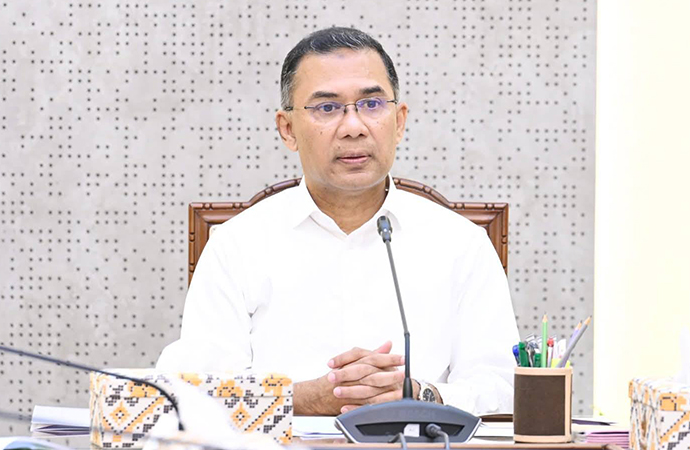
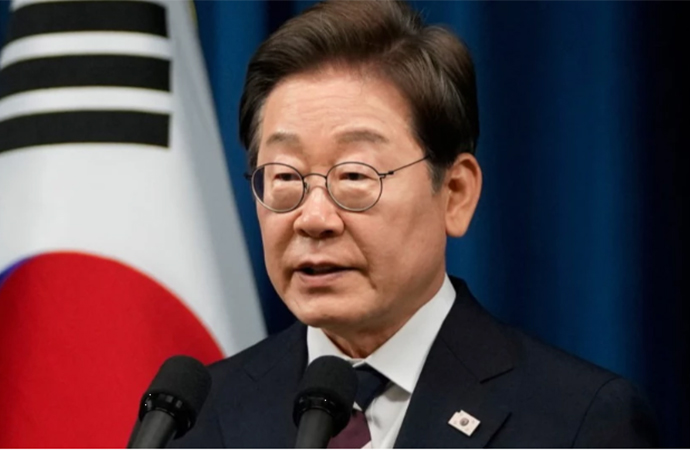
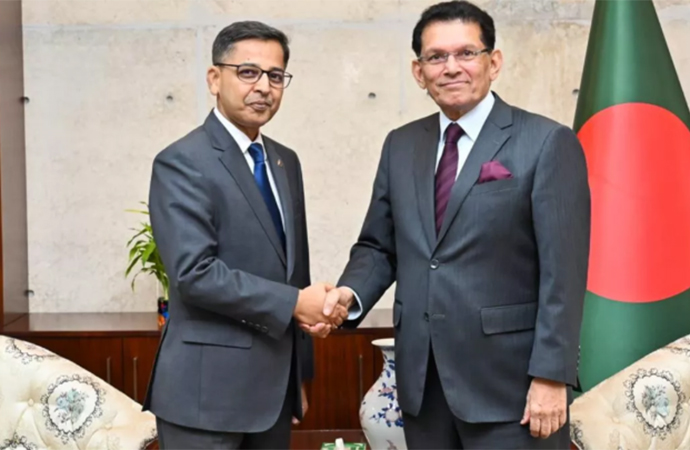
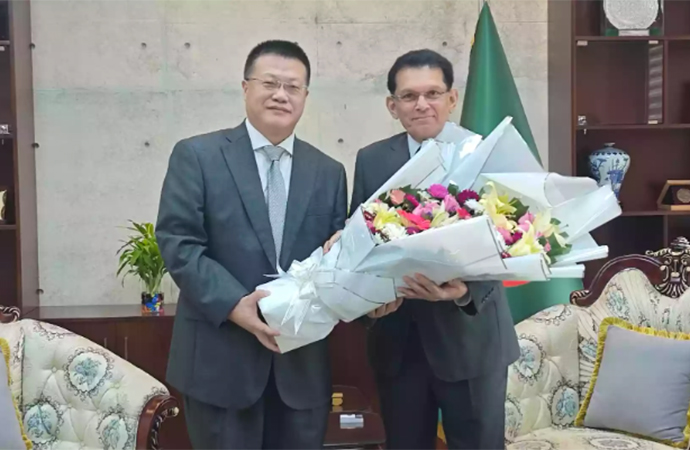
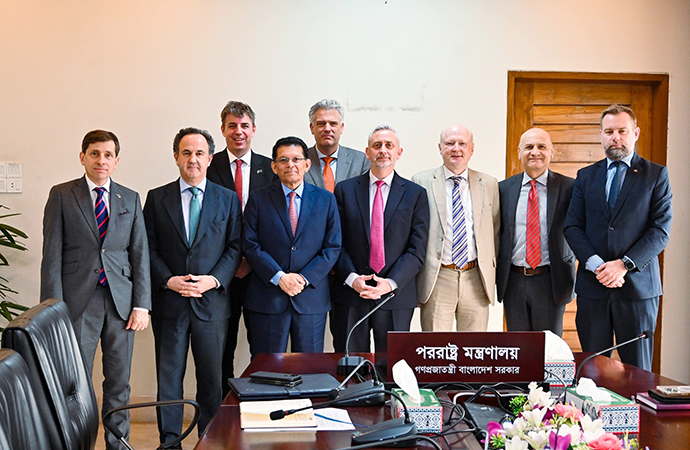
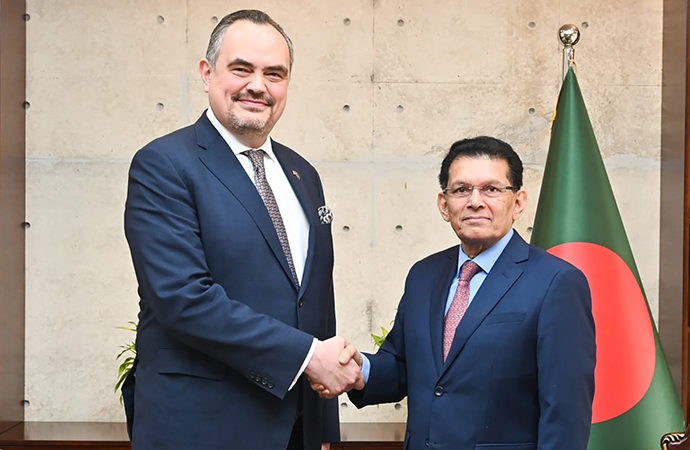







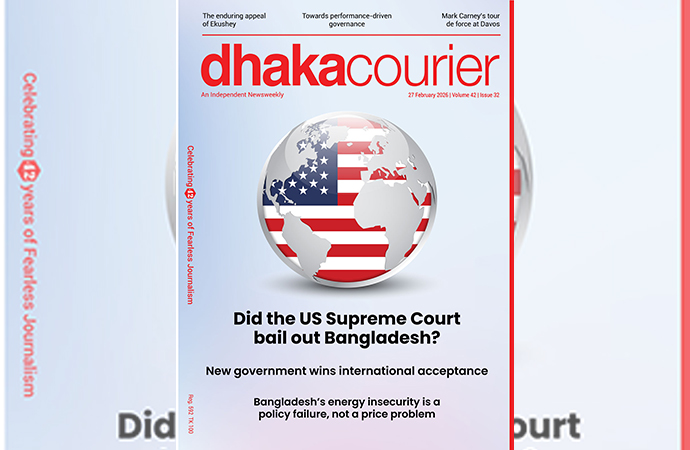





Leave a Comment
Recent Posts
Bangladesh’s first drought-res ...
In a groundbreaking development for Bangladesh’s agriculture, Ga ...
US and Iran hold another round ...
Iran and the United States were holding another round of indirect talk ...
An early hiccup for the new government?
Japan invites PM Tarique, eyes cooperation with Bang ..
Bangladesh to achieve sustained growth, prosperity u ..
Dhaka indicates ‘forward looking, balanced partnersh ..